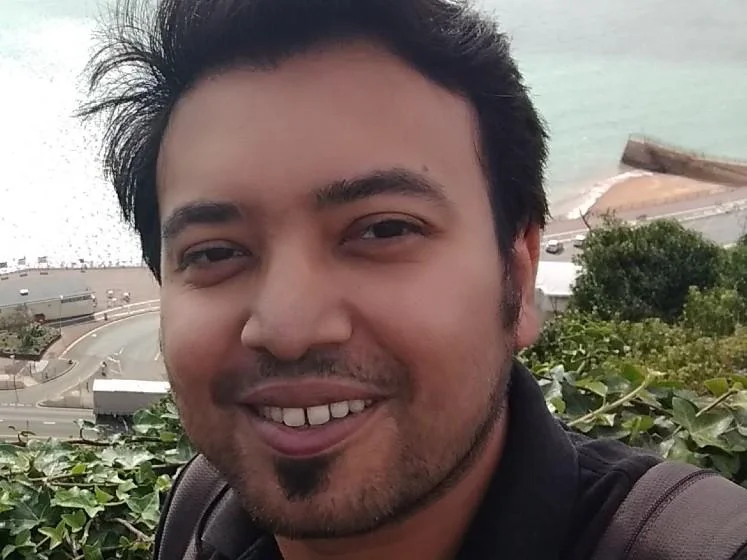Understanding individual behaviour in the context of environmental decisions: a Q&A with Anomitro Chatterjee
Examining (mis)perceptions about air pollution in cities in the UK and attitudes toward conservation
Anomitro Chatterjee is a Research Officer in the Grantham Research Institute on Climate Change and the Environment
LSE’s culture of public lectures, conferences and, of course, the experience of living and working in London is particularly energising to me.

What are you currently researching?
My research uses experiments and randomised controlled trials to understand individual behaviour in the context of environmental decisions. I am currently working on two interdisciplinary projects.
The firstexamines (mis)perceptions about air pollution in cities in the UK. We are conducting a survey to identify disparities between actual and perceived air pollution in different environments, from local neighbourhoods to regular commute routes as well as indoors.
The secondproject examines people’s attitudes toward conservation and involves designing engagement strategies to facilitate sustainable development of privately managed resources in equatorial Africa. Through this project we aim to measure and leverage socioeconomic parameters like altruism, risk attitudes and inter-community linkages to facilitate co-development of natural resources and economic livelihoods.
Why did you choose this area of study?
Since my first course on environmental economics, I have been fascinated by how we can align incentives of individuals to encourage actions that improve social welfare.
Often, the choices of individuals provide benefits to them while harming the environment for others. Economic experiments provide a rigorous methodology to identify the causal impacts of alternative policy options, incentives, or information campaigns designed to mitigate such problems.
How will your research have a wider impact on society? Can you give some real-world examples of the impact your research will have?
I hope that my research will lead to a better understanding of links between economic preferences, environmental attitudes, and individual behaviour. For instance, through the air pollution exposure project, I would hope that policymakers can gain insights that help them move beyond place-based policies like low-emission zones to targeted information campaigns and avoidance strategies toward people who need it most.
What have been the highlights of your research work so far?
The highlight of my research so far came during my PhD work. I was involved in the design and implementation of a large-scale randomised controlled trial on using normative messages to encourage people to conserve energy use in Qatar.
This research area has proliferated in the last two decades; yet the evidence is restricted largely to Western countries. Adapting methodologies and messages to a very different context and implementing experiments in a country where this method and field are less well-known was particularly enjoyable for me!
What has been your biggest challenge so far?
My biggest challenge, as I am sure is the case for many others, has been to navigate the changes brought about by the coronavirus pandemic. Working from home has made time-management difficult. It has also reduced the number of stimulating conversations with colleagues who I do not work with directly. As a silver lining, the numerous online seminars and workshops have allowed me to engage with world-leading research while sitting on my couch.
What advice would you give to prospective students on the most effective way to approach research and keep stress levels down?
Research is an incremental process that builds on consistent work. Since I work on multiple projects, I have found it useful to plan forward at the beginning of a week, setting aside half-day intervals for each project.
I also try to set aside realistic time to write. Within this time, I find it good to set myself up with coffee and music and turn off notifications and email. I have found that switching off from work during weekends and allowing myself time to sit back and reflect on research has helped, although our cat may have been the greatest stressbuster for me!
In a few words, what is the best thing about studying at LSE?
The LSE provides access to an incredible array of research and researchers. Specifically, Grantham provides an environment where a group of leading researchers use a range of methodologies and expertise to work toward a common goal of climate change mitigation and adaption.
This is something that I would not have been exposed to in most other universities and departments. LSE’s culture of public lectures, conferences and, of course, the experience of living and working in London is particularly energising to me.